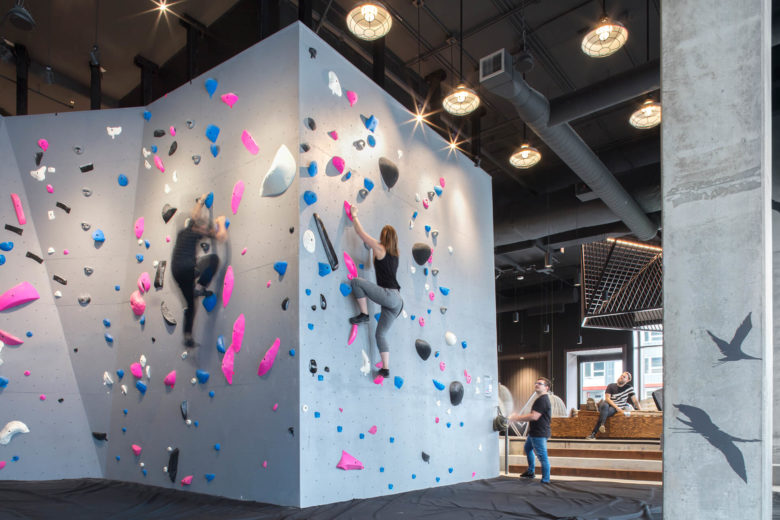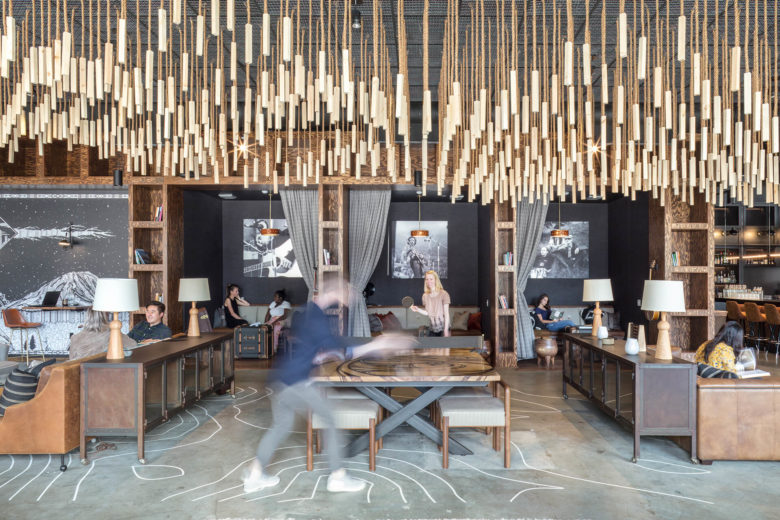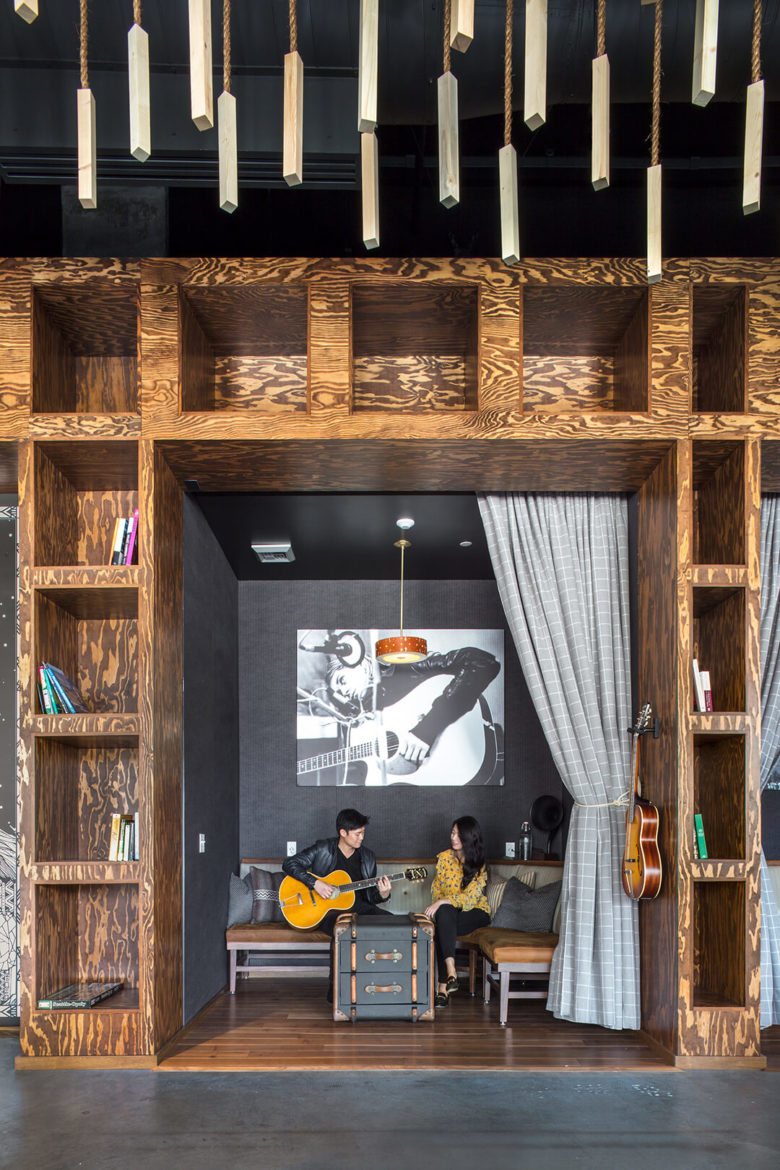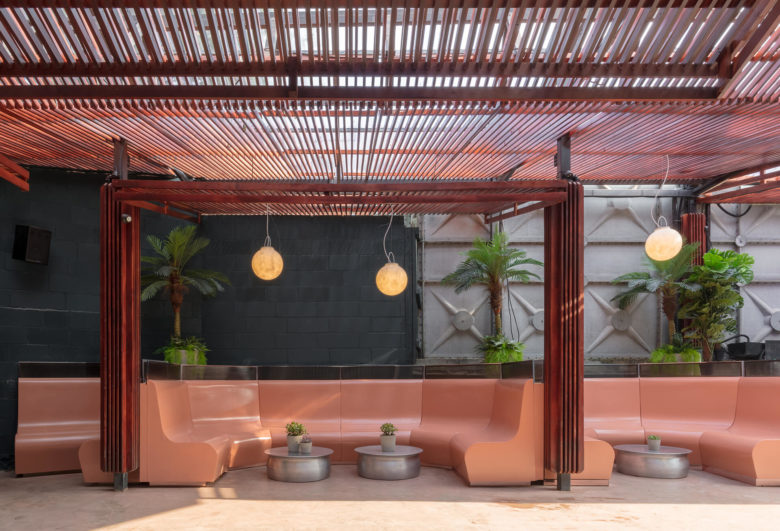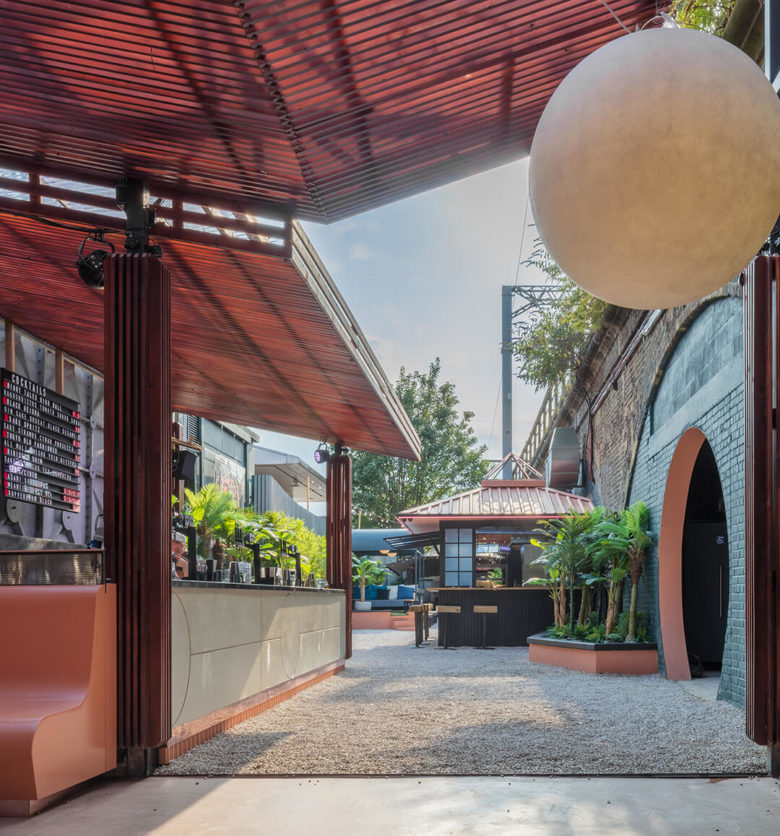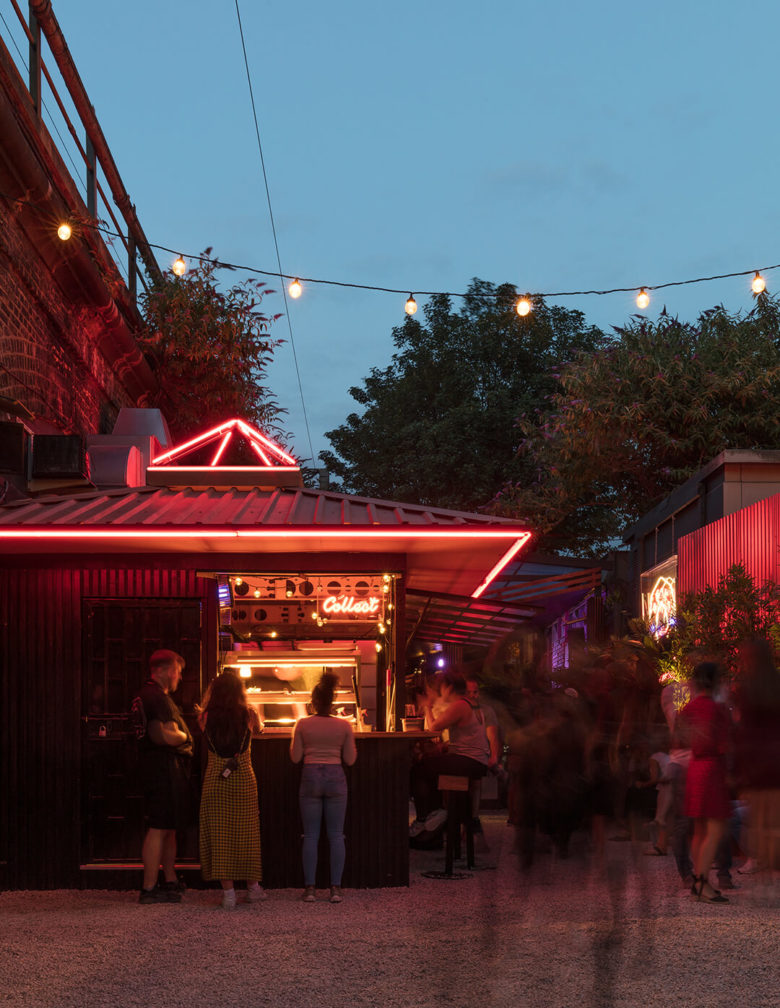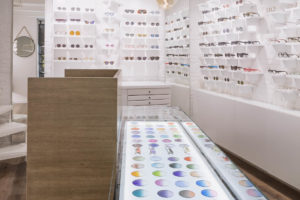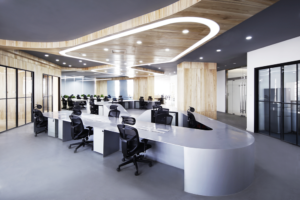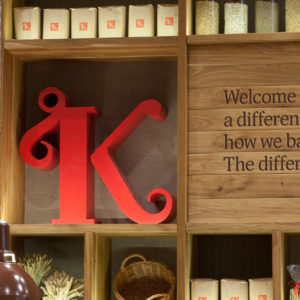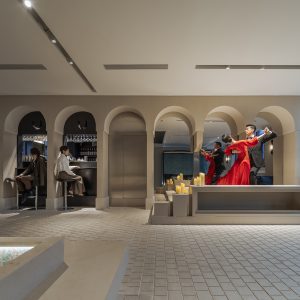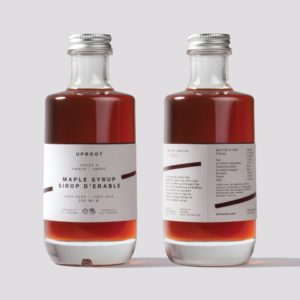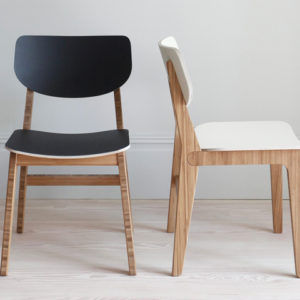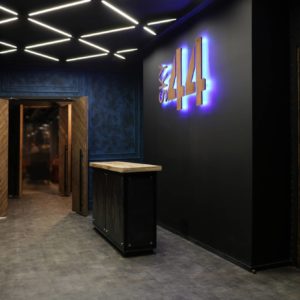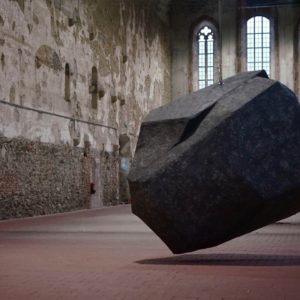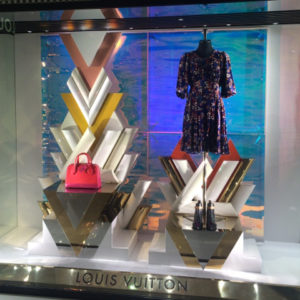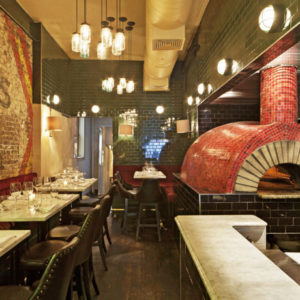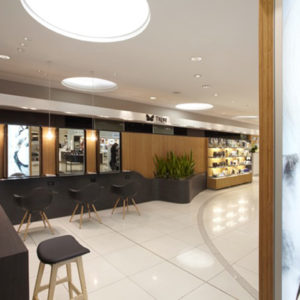
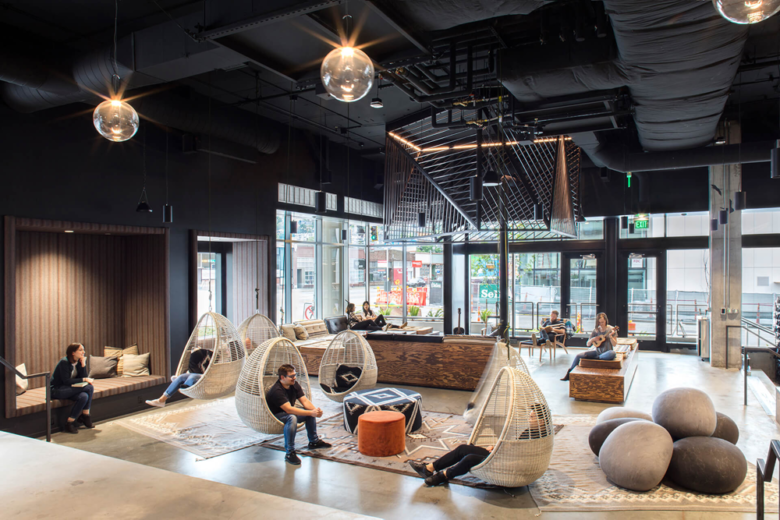
Some might say the ubiquitous urban food hall trend responds to the millennial quest for authenticity. We beg to differ: millennial loneliness might be playing a part there, as well.
When the new Night Tales compound opened under the railway arches of Hackney Central, we realized there was something familiarly millennial about it, far beyond the use of that shade of pink: with the integration of a food court with grilled snacks aplenty, several alcohol setups and a concert venue under one roof, it’s a veritable barhopping killer. No need to go elsewhere for a pre-show meal or a post-show drink, as every corner inside has got you covered.
But in this way, it is also a place where a young member of the London nightlife one can find a ready-made community. For the loneliest generations in history, that seems to be a large part of the appeal. In the UK, which recently appointed a Minister of Loneliness, there are talks of an epidemic. In the US, millennials admit to feeling notably isolated, with a loneliness score of 45.3, but 18-to-22 year-olds just asked them to hold their craft beer: at 48.3, Gen Z students have higher loneliness scores than retirees 72 and older – their scores, in turn, are about 10 points lower. Or to put it another way: 18 to 24-year-olds feel three time as lonely as people over 64.
But as loneliness has been found to have an impact on mortality comparable to smoking 15 cigarettes a day and conversations about mental health conversation have rightfully abandoned the hushed tones of yore to reach the forefront, many public organisations are trying to find the first round of solutions. Take it from a recent report from the Jo Cox Commission on Loneliness: the best cure for this social ailment is creating communities that foster connections and help people build relationships, while also ensuring these communities have spaces in why they can come together.
That’s why, as a response from the private sector, the instant community ignited by spaces such as Night Tales is its own brand of help – it provides a group-therapy session by way of hospitality.
The Night Tales setup first started as a pop-up some three years ago, with iterations in Hackney Wick, Dalston and London Fields. The catch-all formula worked: after much acclaim, this East London venue is their first permanent one. Why? Hit it, Facebook commenter Ştefan Mircea Negură: ‘From the busy and stressful town, when you walk in, everything changes. It’s like you walk into a fantasy story and you don’t want it to end. Good job, guys.’
The fantasy is that of a place where everyone, brought together by the affordable Japanese bites, the design concept and the 5-pound-at-the-door DJ set by Foals, thinks the same way as you. Everyone under that semi-open pink roof is a potential friend to be made, only if for a night.
But that dreaded millennial loneliness doesn’t strike only at sundown: just like these venues are slowly eating traffic that used to belong to the bar and the street cart and the concert hall, another type of daytime typology is starting to attract connection-starved young people who work either remotely or independently: the amped-up co-working member club.
We’ve seen several of these services popping up in metropolitan locations over the past two years, but what makes The Collective stand out is how unexpectedly comprehensive it is. With options like a day-and-night bar, a bouldering gym, a two-storey hammock garden, yoga, painting and live music shows, the Seattle-based social club is the warm embrace you didn’t know you needed. The space looks like the young-adult version of the neighbourhood-park playground… and purposely so. ‘In the land of the ever-increasing community desert, individuals are seeking genuine ways to connect,’ explained owner Tommy Trause. ‘We believe that one of the most genuine vehicles for connection is finding shared passions, and The Collective strives to be an aspirational bridge, helping people realize their passions and form communities.’
That is no understatement: the venue provides 1,400 generous sq-m in which to realize those passions. Many members come from the tech industry in South Lake Union, a relatively new district in the city – its biggest claim to fame is being the home of the Amazon Campus after the company moved from Beacon Hill 10 years ago. This means Amazonia, as it is referred to by locals, doesn’t hold the burden of social heritage carried by other areas in Seattle. The internet giant brought in more than 40,000 workers from all over the country, and as many don’t have roots in the State of Washington, differing degrees of social alienation are expected. That’s what makes a spot like The Collective so particularly attractive: club members get to create their own social history.
‘This was the attraction for our client – the location fits the spirit of a district that isn’t hampered by legacy and tradition, so it’s not in the same sandbox as all the other clubs,’ explained Chad Yoshinobu, the design director at Gensler, the firm behind the project. ‘It connects people interested in a social collective like this – who value co-working, breaking bread, health and wellness. It supports a demographic whose lives blur the lines of life and work.’
Thanks to the widespread appvailability, in-person gatherings are on a downward spiral. That is part of the reason why this generation tends to suffer from the lonely malaise: high-quality relationships are formed by repeated, unplanned face-to-face interactions – that’s why it’s much easier making lifelong friends in school or university versus the atomised encounters of adulthood. What The Collective does is create a welcoming but self-selective space that is designed to take its members back to that sweet social stage.
‘With proximity, people will eventually, organically connect,’ added Trause. ‘However, by creating a dynamic space designed for creative collisions and catalysed by programmes, these connections happen so much more quickly.’
Designed by Sella Concept
Designed by Gensler
Photography by Nicholas Worley, Heywood Chan
